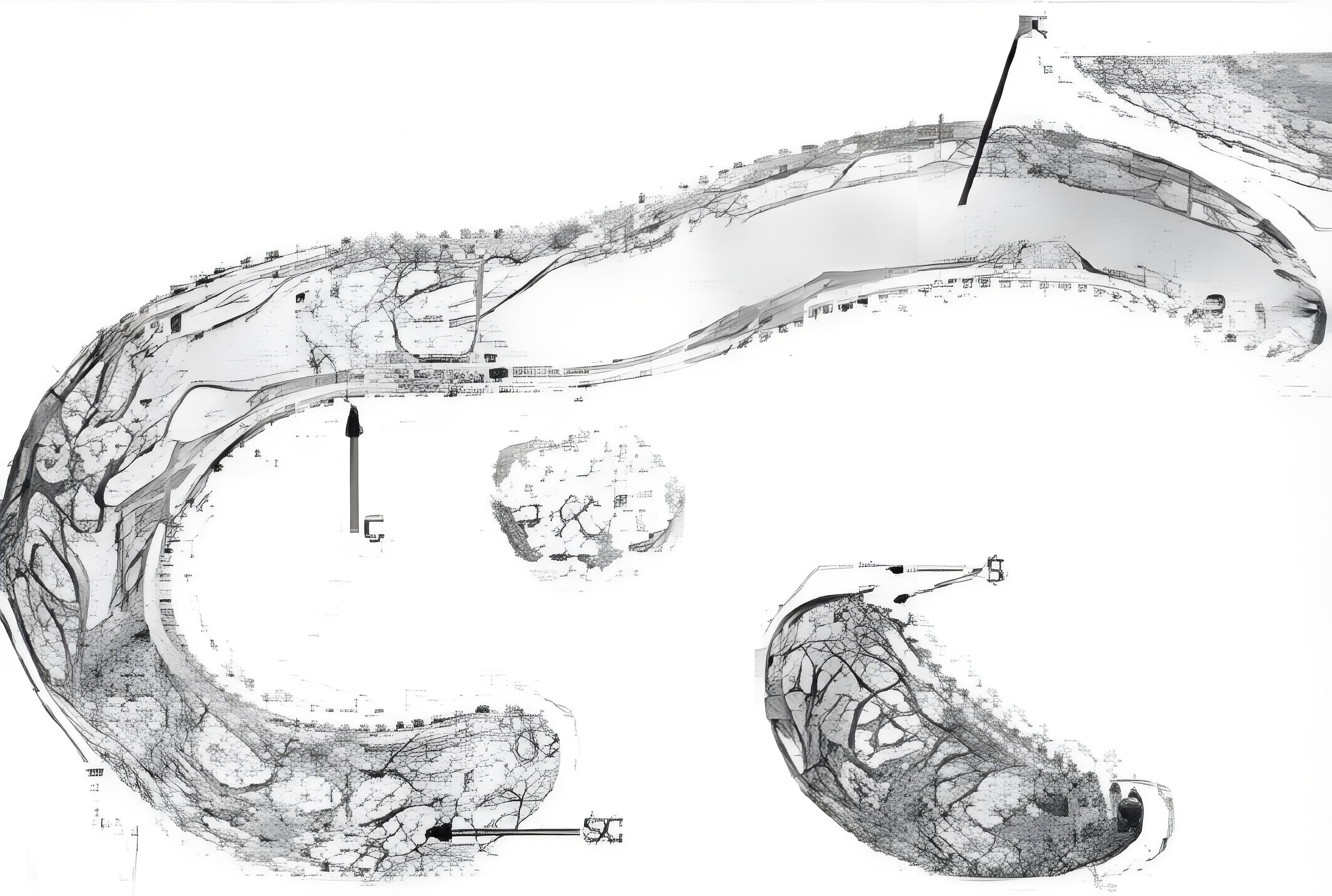There are various ways of transmission of Toxoplasma, including congenital transmission and acquired transmission. Congenital transmission refers to the infection of the mother during pregnancy, and the fetus is infected through the mother's placental blood; acquired transmission is mainly oral infection, such as eating or drinking food or water contaminated by cat feces with oocysts, or eating raw or undercooked meat with Toxoplasma tissue cysts. In addition, Toxoplasma can also be transmitted through damaged skin and mucous membranes, or through contact with soil and water contaminated by oocysts. The symptoms of Toxoplasma infection vary from individual to individual and stage of infection. For hosts with normal immune function, infection with Toxoplasma may have no obvious symptoms or only mild symptoms, such as fever, muscle aches, and swollen lymph nodes. For immunocompromised people, such as AIDS patients and organ transplant recipients, infection with Toxoplasma may cause severe symptoms, such as high fever, maculopapular rash, myalgia, joint pain, headache, vomiting, delirium, and may also cause encephalitis, myocarditis, pneumonia, hepatitis, gastroenteritis, etc. Pregnant women infected with Toxoplasma can be directly transmitted to the fetus through the placenta, leading to serious consequences such as fetal malformation, congenital idiocy and stillbirth.
The symptoms of Toxoplasma infection vary from individual to individual and stage of infection. For hosts with normal immune function, infection with Toxoplasma may have no obvious symptoms or only mild symptoms, such as fever, muscle aches, and swollen lymph nodes. For immunocompromised people, such as AIDS patients and organ transplant recipients, infection with Toxoplasma may cause severe symptoms, such as high fever, maculopapular rash, myalgia, joint pain, headache, vomiting, delirium, and may also cause encephalitis, myocarditis, pneumonia, hepatitis, gastroenteritis, etc. Pregnant women infected with Toxoplasma can be directly transmitted to the fetus through the placenta, leading to serious consequences such as fetal malformation, congenital idiocy and stillbirth.
Precautions for raising cats
In view of the potential harm of Toxoplasma to humans and animals, the following points should be noted when raising cats to prevent Toxoplasma infection:
Food hygiene: Avoid feeding raw or half-cooked meat to cats, and choose commercial pet food that meets hygiene standards. At the same time, humans should also avoid eating uncooked meat and dairy products, as well as unwashed vegetables and fruits.
Daily hygiene: Clean cat litter every day, change the cat litter box regularly, and use cat litter with good antibacterial properties. Wash your hands and clean the countertops with soap in time after handling raw meat. In addition, you should also regularly wash the sleeping mat and tableware for cats to keep the cat's living environment clean and hygienic.
Avoid contact with infection sources: Try to keep cats indoors to prevent them from going out to prey on animals that may be infected with Toxoplasma. At the same time, cats should also be prevented from contacting stray cats or other animals that may carry Toxoplasma.
Regular check-ups: Take your cat to the veterinarian regularly for a physical check-up, especially for Toxoplasma. If your cat is infected with Toxoplasma, early detection and appropriate treatment measures will help reduce the impact of the disease.
Personal hygiene: Be sure to clean your hands thoroughly after interacting with your cat. In addition, avoid eating raw meat and unprocessed foods to reduce the risk of Toxoplasma infection.
In general, by taking the above measures, the risk of Toxoplasma infection in humans and cats can be effectively reduced. At the same time, awareness and prevention of Toxoplasmosis should also be strengthened to protect the health of humans and animals.
So, can pet dogs also be infected with Toxoplasma? Yes, puppies can also be infected with Toxoplasma. Toxoplasma is a parasitic protozoan that can parasitize in a variety of animals, including dogs. The following is a detailed answer to the question of puppies being infected with Toxoplasma:
1. Symptoms of infection
Acute infection: Puppies may experience symptoms such as fever, lethargy, drowsiness, anorexia, difficulty breathing, vomiting, diarrhea, etc. The body temperature may reach around 40 degrees, and in severe cases, bloody diarrhea and jaundice may also occur.
Chronic infection: Puppies may show symptoms such as emaciation, anemia, and loss of appetite. Sometimes neurological symptoms such as paralysis and convulsions may also occur.
Infection in female dogs: Pregnant female dogs infected with Toxoplasma may cause miscarriage, premature birth or stillbirth. The puppies may have symptoms such as loose stools, difficulty breathing and movement disorders.
2. Preventive measures
Avoid feeding raw meat: Do not feed raw or undercooked meat to puppies to reduce the risk of infection with Toxoplasma.
Regular cleaning: Clean the puppy's living environment regularly, especially places that puppies often touch, such as doghouses, food bowls, etc.
Avoid contact with infection sources: Avoid puppies from contact with feces of cats infected with Toxoplasma or other substances that may carry Toxoplasma.
Regular deworming: Regularly deworm puppies to prevent parasitic infections. It is recommended to consult a veterinarian to choose the appropriate deworming medicine and deworming cycle.
Health check: Take the puppy to the veterinary hospital for health check-ups regularly, including detection of parasites such as Toxoplasma. 3. Infection route
3. Infection route
Food transmission: Puppies eat uncooked meat containing Toxoplasma tachyzoites or cysts, or food and water contaminated with Toxoplasma.
Contact transmission: Puppies come into contact with feces of cats infected with Toxoplasma or other substances containing Toxoplasma, which then enter the body through the mouth or damaged skin.
Vertical transmission: Pregnant female dogs may pass Toxoplasma to the fetus through the placenta.
4. Precautions
Zoonosis: Toxoplasma is a zoonosis, and humans may also be infected by contact with puppies infected with Toxoplasma. Therefore, when handling puppy feces and cleaning the puppy's living environment, be sure to pay attention to personal hygiene and wash hands frequently.
Note for pregnant women: If there is a pregnant woman at home, special attention should be paid to avoid close contact with puppies who may be infected with Toxoplasma to reduce the risk of infection. Pregnant women infected with Toxoplasma may cause serious consequences such as fetal malformation and miscarriage.
So, puppies are indeed likely to be infected with Toxoplasma, but the risk of infection can be effectively reduced by taking appropriate precautions and paying attention to personal hygiene. If you suspect that your puppy is infected with Toxoplasma, it is recommended to take it to a pet hospital for diagnosis and treatment in time.
Why is it generally believed that cats need to pay attention to Toxoplasma, but dogs do not need it? This is mainly based on the following reasons:
Biological characteristics
Final host: Toxoplasma reproduces sexually in cats, produces oocysts and excretes them with feces, which makes cats the main source of Toxoplasma transmission. In contrast, although dogs are the intermediate hosts of Toxoplasma, they usually do not excrete infectious oocysts, so the risk of transmission is lower.
Infection probability
Infection route and probability: After a cat is infected with Toxoplasma, its feces may contain oocysts for a long time. These oocysts are highly resistant to the environment and are easily transmitted to humans and other animals. After a dog is infected with Toxoplasma, it usually does not excrete oocysts through feces, so the risk of direct transmission to humans and other animals is relatively low.
 Lifestyle and habits
Lifestyle and habits
Behavior of cats: Cats have the habit of using litter boxes and like to lick their own hair and clean their bodies, which increases the chances of humans coming into contact with Toxoplasma oocysts in cat feces. In contrast, dogs usually do not bring feces home, and their contact with humans is relatively simple, reducing the risk of spreading Toxoplasma.
Public awareness and publicity
Information popularity: Since cats are the main source of Toxoplasma transmission, the relevant health risks and preventive measures have been more widely publicized and educated among the public. This has made people more concerned about the risk of Toxoplasma infection when raising cats.
In summary, raising cats requires attention to Toxoplasma while raising dogs is relatively less necessary, which is mainly based on the biological characteristics of Toxoplasma, the probability of infection, the different lifestyles and habits of cats and dogs, and the differences in public awareness and publicity. However, this does not mean that the risk of Toxoplasma infection can be completely ignored when raising dogs. Whether raising cats or dogs, pets should be kept hygienic and clean, avoid direct contact with pet feces, and have regular physical examinations and deworming for pets.
Categories: pets
